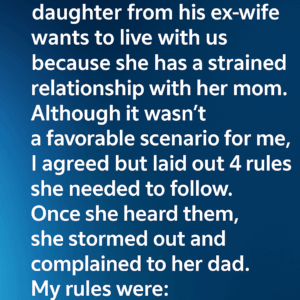Mandy has always supported her son and daughter-in-law (DIL), babysitting her three grandchildren and even helping financially when her DIL’s ex stopped paying child support. Recently, her DIL’s two older children from a previous relationship started spending more time at Mandy’s house and constantly eating, sometimes sneaking food behind her back. The breaking point came when Mandy discovered they had eaten an entire birthday cake she had baked for a friend.
When Mandy brought up the issue, her DIL dismissed it, saying the kids were just growing and needed food. Mandy asked her to either help with cooking or contribute to groceries, but her DIL accused her of favoritism because she didn’t complain about her biological granddaughter. Hurt, Mandy explained it wasn’t favoritism — her granddaughter simply asked before taking anything.
Since then, her DIL has been distant and brings the children over less often, leaving Mandy stressed and struggling. Living on a pension, she can barely afford groceries and even has to hide food so she doesn’t go hungry. She feels guilty asking her son for money but knows she can’t keep covering all the costs herself.
Advice given to Mandy suggested open communication and understanding. Her DIL may be overwhelmed by financial stress and didn’t realize how much it affected Mandy. By calmly explaining her feelings and setting boundaries, Mandy can mend relationships while ensuring the family finds a sustainable solution, such as seeking financial assistance or sharing responsibilities.





